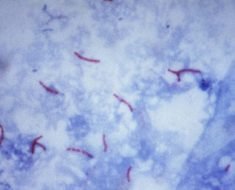Leptospirosis, which affects more than one million people worldwide each year, is known to be transmitted to humans from a wide range of animals. Now, researchers reporting in PLOS Neglected Tropical Diseases have discovered that more than 7 percent of the cattle and 1 percent of sheep and goats in local slaughterhouses in northern Tanzania are infected with Leptospira bacteria.
Leptospirosis is a disease caused by infection with bacteria of the genus Leptospira. In humans, the disease can range in severity from mild to severe disease leading to kidney damage, liver failure, or death. The disease is most common in tropical environments, but occurs worldwide, particularly in people who work outdoors or with animals. Acute leptospirosis is an important cause of febrile disease in Tanzania, where little is known about the most common sources of infection in humans.
In the new work conducted in northern Tanzania, Kathryn Allan, of the University of Glasgow, UK, and colleagues tested rodents, cattle, goats and sheep for Leptospira infection. Animals were sampled in the catchment areas of two hospitals that had high prevalence of patients with leptospirosis. Small samples of kidney tissue were collected and used to test for the bacteria.
Among 384 trapped rodents trapped, no animals were found to carry Leptospira infection. In contrast, Leptospira was detected in kidney samples from 7.1% of cattle, 1.2% of goats, and 1.1% of sheep. As well as having a high prevalence of infection, cattle were found to be carrying four different types of Leptospira bacteria, all of which have the potential to cause disease in people.
Source: Read Full Article





